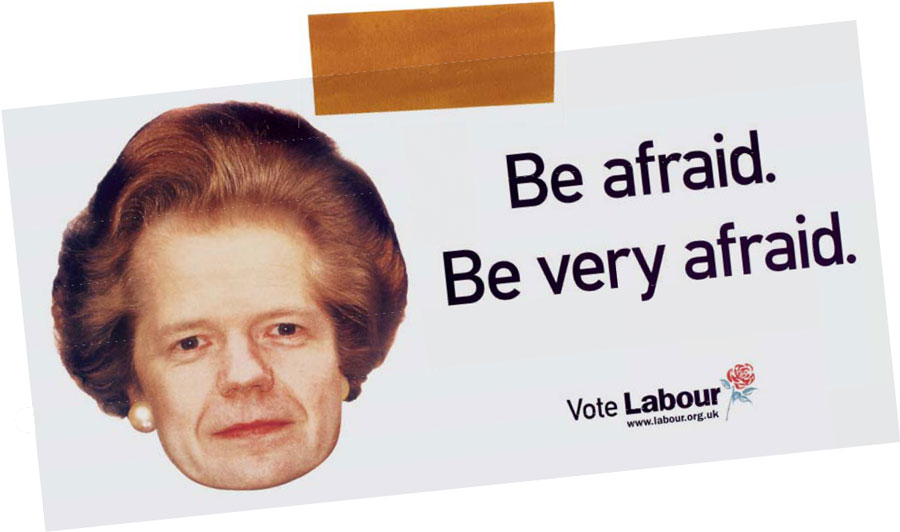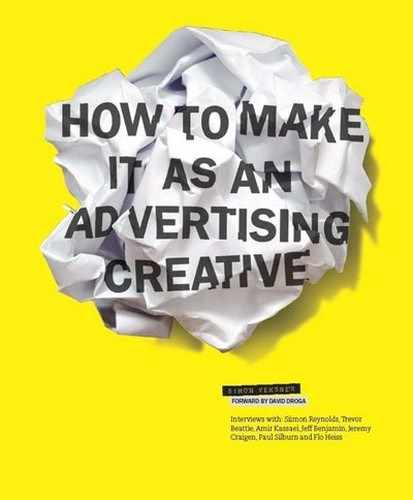
FOUNDER AND CREATIVE DIRECTOR
BEATTIE MCGUINNESS BUNGAY, LONDON, ENGLAND
Balls of steel. The constitution of an ox. A thick skin. Big ears. An open mind. Bouncebackability. Self-belief. A nice shirt. A childlike sense of wonder at even the most mundane aspects of our world. A sense of humor. A total lack of interest in last year’s awards annuals. Oh, and luck. Lots of luck.
See answer to the first question. But also, so much of it is about timing. Some people are prepared and ready to make it. Some aren’t. Some find out that once they’ve got in, it ain’t as easy as they thought/were told it might be. Above all, I never hire people on what’s in their book. It’s what’s in their heads I’m interested in. I can tell from simply talking to a team whether they’ll make it or not.
Easy. You should be able to work anywhere and everywhere.
Yes. An unhappy team can do good work. I disagree with the notion of an “odd couple.” All couples should be “odd,” i.e. an A and a B. A Lennon and a McCartney. A Yin and Yang. It’s when a team start acting alike that their work suffers. They become a pair. They lose perspective.
It’s increasingly important. More and more clients want to meet creative people. If you’ve created something, you should be proud to show it off, talk it up. Often presenting my work helps me explain the idea more clearly to myself! It can help reveal meanings in the work that you may not have realized existed….

Only if they are. Do it diplomatically. And only ever face to face.
It’s bloody vital they get on with every single member of the agency. Everyone has a part to play in creating great work.
Just have great ideas. If they’re great enough you’ll probably be able to stick ’em anywhere.
No. I call it cheating. It’s a hobby, nothing more. An important part of your day job includes convincing a client/company to put their precious money behind your idea in order to flog product. Do your job and stop cheating. There’s no future in it and it won’t get you a pay rise. And one day you’ll get exposed and fired. And I’ll laugh. Ha.
Yes and no. They’re rewards rather than awards. Enter them. Win them. But don’t build your career around them. And please, please, please, please. Don’t display them in your office, you puerile gormless tw*t. (I used to do it, but I’m alright now.) Give ’em to clients. They love ’em. And never, ever, ever, ever, ever, ever take old awards to your new agency. If you see someone doing this, steal the awards and throw them away. Never forget: awards have a date on them. It can become your career’s expiry date if you choose to live by them….
Today! (I’m serious. Don’t keep putting it off while you finish that shoot you’ve been waiting to go on….)
It was the low point of my entire career. It changed my life for ever. And I vowed it would never ever happen to me again. It hasn’t.
I’ve never set out to do anything other than my day job. Day-to-day, I tend to make it all up as I go along. It keeps me guessing as much as anyone else. I also have no idea whether that’s the right or wrong way to go about things. It just works for me.

Graham Fink has a phrase for it: be a sponge. And he’s the most inventive creative director in the business. I suggest we all follow Fink. Advertising itself (and old ads in particular) should be about 0.015 percent of your overall creative influences.
Two heads are better than one. Two silos aren’t.
It’s a thankless task. The most difficult and underrated job in our business. Most people want the title, but not the responsibilities (or the endless meetings!) that come with it. Ninety-nine percent of creative directors (especially those at big agencies) are not creative directors. They are group heads. Many of them are technically dick heads. But that’s another story. José Mourinho is a brilliant football manager. Yet he never scored a goal in his life. I don’t believe you need to have written a decade’s worth of brilliant ads to become a great CD. But you do need to be able to recognize and promote great work. Some can. Many can’t.
Stop thinking about it and start doing it.
Getting out of advertising is easy. Just make enough money to walk away and walk away. Getting advertising out of you is a different matter altogether. Most people who’ve lived their adult lives in advertising (to any degree of success) seem to find it difficult to let go. It’s probably best to treat the matter the way you’d treat a start-up: you’ll know when the time is right. When it comes, close your eyes and jump. The Geronimo school of career management. Good luck.
